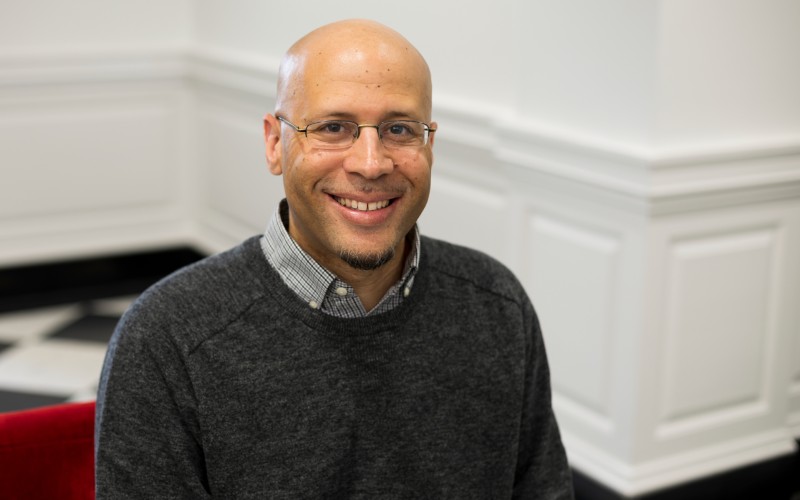
Anthony Burrow, Ferris Family Associate Professor of Life Course Studies in the Department of Psychology, shared his research on the benefits of having a sense of purpose in life at the White House Youth Policy Summit on February 13.
The summit was an opportunity for nearly 90 young adults to meet with cabinet secretaries and representatives from federal agencies, experts in adolescent development and leaders of youth-serving organizations and learn from one another about how to improve policies and programs to ensure that all youth can thrive. It was planned in partnership with youth.
To help policymakers think beyond their individual agency responsibilities and center the discussion on equity, lived experience and developmental science, the summit organizers outlined a framework of six developmental goals: wellbeing and environment, belonging, purpose, identity and meaning-making, agency and decision-making, and leadership and contribution.
Burrow was part of the session on purpose along with Fatima Ahmad, a Brooklyn-based writer, activist and filmmaker and the 2023-2024 New York City Youth Poet Laureate, and Alyssia Leach, entrepreneur in residence at GripTape, a nonprofit working to expand youth-driven learning experiences. GripTape partners with Cornell Human Ecology’s Bronfenbrenner Center for Translational Research, which Burrow directs, to study the impact of its Learning Challenge model on youth wellbeing.
Burrow participated in a plenary-style panel discussion with Ahmad and Leach. The session’s goal was to inspire policymakers, practitioners and youth to reflect on the current literature and build purpose in central pieces of legislation and youth lives.
"Opportunities to engage policymakers in conversation around the science of purpose are rare, making this convening a uniquely important venue," Burrow said. "Because purpose is often viewed as a luxury reserved for a privileged few, considering how it might be cultivated among all youth so that they reap its benefits for health and wellbeing is vital.”
There is no clear answer on how to best find purpose, but science suggests that creating spaces to talk about it can help. While the concept of purpose has yet to be fully incorporated into current policy, it has potential benefits for children's well-being. For example, reflecting and bridging the idea of purpose between older generations and the current youth population could help explore ways to incorporate individual purpose and weave it into policy.
During the panel, students and adolescents were invited to provide personal insights into their lives and how purpose can be incorporated into school and afterschool programs. Especially in a crucial age of development, adults can tailor specific strategies to help these groups of individuals find their purpose.
However, Burrow expressed caution in his remarks when implementing the concept in policies. "It is important to know there is a research literature on purpose that is growing in sophistication and nuance," he said. "People experience purpose in different ways, and policies should be designed in close relationship to the available evidence about the populations who will be impacted by them."
The groups who attended the summit in February will reconvene in six months to share their progress and knowledge of purpose. They will consider the information collected and shift their primary focus, discussing both generalizability and specific insights on the context of purpose.
Burrow said that one of his takeaways from the summit is that purpose appears to figure prominently in both lived experience and in research. With the literature to back it up, we need to stimulate exchange between adolescents, policymakers, and practitioners to entwine purpose within youth legislation design and implementation.